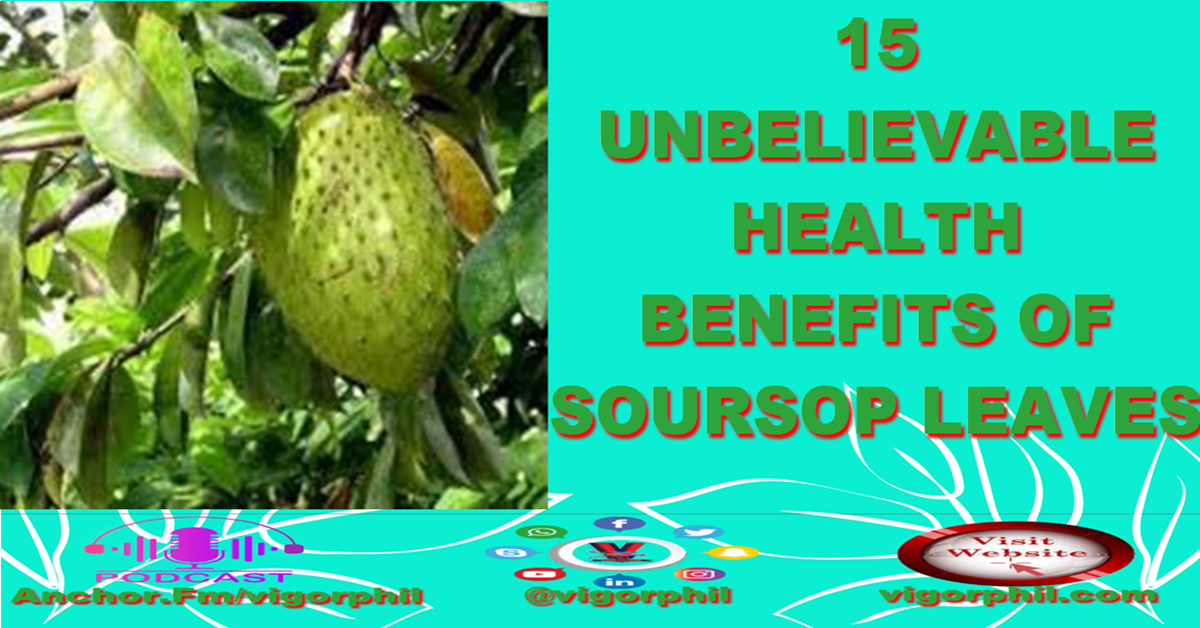Morning sickness is a common condition experienced by many pregnant women, characterized by nausea and vomiting, typically in the first trimester. While morning sickness is a sign of a healthy pregnancy, it can also be extremely uncomfortable and disruptive to daily life. Finding effective treatment for morning sickness is essential to ensure the well-being of both mother and baby.
In this article, we will explore various treatment options, including lifestyle changes, over-the-counter and prescription medications, alternative therapies, and when to seek medical attention. Whether you’re experiencing mild or severe morning sickness, read on to learn about the best morning sickness treatments available.
Eating small, frequent meals
One of the most effective ways to manage morning sickness is to eat small, frequent meals throughout the day. This can help to prevent an empty stomach, which is a common trigger for nausea and vomiting. Instead of three large meals, try eating five or six smaller meals throughout the day, spaced out every two to three hours.
It’s also important to choose the right types of foods for your small meals. Foods that are high in protein and complex carbohydrates can help to keep your blood sugar stable and prevent feelings of nausea. Examples of good choices include whole grains, nuts, seeds, and fruits and vegetables.
On the other hand, it’s important to avoid trigger foods that may exacerbate morning sickness symptoms. These can vary from person to person, but common culprits include spicy, fatty, or greasy foods, as well as strong-smelling or highly processed foods. It may be helpful to keep a food diary to identify your own personal trigger foods and avoid them.
In addition to eating small, frequent meals and avoiding trigger foods, it’s also important to stay hydrated throughout the day. Sipping on water or other clear fluids can help to prevent dehydration, which can make nausea worse. You may also find it helpful to sip on ginger tea or eat ginger chews, as ginger has natural anti-nausea properties.
By making these simple changes to your diet and eating habits, you can help to manage your morning sickness symptoms and feel more comfortable throughout your pregnancy.
Avoiding trigger foods
Avoiding trigger foods is an important part of managing morning sickness. Trigger foods are those that tend to exacerbate nausea and vomiting, and can vary from person to person. Common trigger foods include spicy, fatty, or greasy foods, as well as strong-smelling or highly processed foods. Identifying your own personal trigger foods and avoiding them can go a long way in reducing morning sickness symptoms.
To identify your trigger foods, it can be helpful to keep a food diary for a few days. Write down everything you eat and drink, as well as any symptoms you experience. This can help you to identify patterns and pinpoint which foods may be causing your symptoms. Once you’ve identified your trigger foods, try to avoid them as much as possible.
Instead, focus on eating foods that are gentle on your stomach and provide good nutrition. This may include lean proteins, whole grains, fruits and vegetables, and foods high in vitamin B6, such as bananas and avocados. Eating small, frequent meals throughout the day can also help to prevent an empty stomach, which can worsen morning sickness.
It’s important to note that while avoiding trigger foods can be helpful, it’s not a cure-all for morning sickness. Some women may find that even bland, gentle foods can still trigger symptoms. In these cases, other treatment options such as over-the-counter or prescription medications may be necessary.
By avoiding trigger foods and focusing on nutritious, gentle foods, you can help to manage your morning sickness symptoms and feel more comfortable throughout your pregnancy.
Staying hydrated
Staying hydrated is an important aspect of managing morning sickness. When you are dehydrated, nausea can become worse, and you may feel more fatigued. Drinking plenty of fluids throughout the day can help to keep you hydrated and reduce morning sickness symptoms.
Water is the best choice for staying hydrated, but you can also try clear liquids such as broth, herbal tea, or ginger ale. Drinking small amounts of fluids frequently throughout the day may be easier on your stomach than drinking large amounts all at once. You may also find it helpful to suck on ice chips or sip on cold water or clear liquids.
In addition to drinking fluids, you can also try eating foods with high water content such as watermelon, cucumbers, or celery. These foods can help to increase your fluid intake and provide additional nutrients.
If you are having trouble keeping fluids down, it’s important to speak with your healthcare provider. They may be able to recommend additional treatment options, such as intravenous fluids or medication to help manage your symptoms.
Overall, staying hydrated is an important part of managing morning sickness. By drinking plenty of fluids and eating foods with high water content, you can help to reduce symptoms and feel more comfortable throughout your pregnancy.
Trying acupressure or aromatherapy
Acupressure and aromatherapy are alternative treatment options that some women find helpful in managing morning sickness. While there is limited scientific evidence to support their effectiveness, many women find them to be safe and helpful in reducing symptoms.
Acupressure involves applying pressure to specific points on the body. One common acupressure point for morning sickness is the inner wrist, located about two finger widths down from the crease of your wrist. You can use your thumb and index finger to apply gentle pressure to this point for a few minutes, several times a day. Some women find that using acupressure bands, which apply pressure to the wrist, can also be helpful.
Aromatherapy involves using essential oils to help reduce nausea and vomiting. Some essential oils that may be helpful for morning sickness include ginger, peppermint, and lemon. You can use a diffuser to spread the scent of the essential oil throughout a room, or you can add a few drops to a warm bath. You can also apply a drop or two of the essential oil to a tissue or handkerchief and inhale it throughout the day.
It’s important to note that not all essential oils are safe for use during pregnancy. Some oils can cause uterine contractions or other complications, so it’s important to speak with your healthcare provider before using any essential oils during pregnancy.
Overall, acupressure and aromatherapy are alternative treatment options that may be helpful in managing morning sickness symptoms. While they may not work for everyone, they are safe and non-invasive options that are worth trying if you’re looking for additional relief.
Getting enough rest
Getting enough rest is an important aspect of managing morning sickness. Fatigue can exacerbate nausea and make it more difficult to cope with morning sickness symptoms. Getting enough rest can help to reduce fatigue and improve your overall well-being.
Try to get at least 7-8 hours of sleep each night, and take naps during the day if needed. It’s important to listen to your body and rest when you need it, as pushing yourself too hard can worsen symptoms.
In addition to getting enough sleep, you can also try relaxation techniques such as meditation, and deep breathing. These techniques can help to reduce stress and anxiety, which can exacerbate morning sickness symptoms.
If you’re having trouble sleeping, try creating a calming bedtime routine. This may include taking a warm bath, reading a book, or listening to soft music. Avoid using electronics or doing stimulating activities before bed, as these can make it more difficult to fall asleep.
Overall, getting enough rest is an important aspect of managing morning sickness symptoms. By prioritizing sleep and relaxation, you can help to reduce fatigue and improve your overall well-being.
Vitamin B6 supplements
Vitamin B6, also known as pyridoxine, is a vitamin that plays a role in many bodily functions, including the regulation of nausea and vomiting. Some studies have found that vitamin B6 supplements can be an effective treatment option for managing morning sickness symptoms.
While you can get vitamin B6 from a variety of foods, including bananas, chicken, and fortified cereals, taking a vitamin B6 supplement may be more convenient and effective in managing morning sickness symptoms.
The recommended dose of vitamin B6 for managing morning sickness is typically 10-25 milligrams, taken three times a day. However, it’s important to speak with your healthcare provider before taking any supplements, as they can advise you on the best course of treatment based on your individual needs and medical history.
While vitamin B6 supplements are generally considered safe, taking too much can lead to toxicity. Symptoms of vitamin B6 toxicity can include nerve damage, skin lesions, and gastrointestinal issues. It’s important to follow the recommended dosage and speak with your healthcare provider before starting any new supplement regimen.
Overall, vitamin B6 supplements can be an effective treatment option for managing morning sickness symptoms. However, it’s important to speak with your healthcare provider before taking any supplements and to follow the recommended dosage to avoid any potential complications.
Ginger supplements
Ginger is a natural remedy that has been used for centuries to treat a variety of ailments, including nausea and vomiting. Some studies have found that ginger supplements can be an effective treatment option for managing morning sickness symptoms.
Ginger works by blocking certain receptors in the body that are associated with nausea and vomiting. While ginger can be consumed in various forms, including tea and candy, taking a ginger supplement may be more convenient and effective in managing morning sickness symptoms.
The recommended dose of ginger for managing morning sickness is typically 1 gram per day. However, it’s important to speak with your healthcare provider before taking any supplements, as they can advise you on the best course of treatment based on your individual needs and medical history.
While ginger supplements are generally considered safe, taking too much can lead to complications such as heartburn, bloating, and gastrointestinal issues. It’s important to follow the recommended dosage and speak with your healthcare provider before starting any new supplement regimen.
Overall, ginger supplements can be an effective treatment option for managing morning sickness symptoms. However, it’s important to speak with your healthcare provider before taking any supplements and to follow the recommended dosage to avoid any potential complications.
seek medical attention
While morning sickness is a common and often mild condition, there are certain situations in which you should seek medical attention. These include:
- Severe and persistent vomiting: If you’re unable to keep any food or liquids down, or if you’re vomiting more than three to four times a day, it’s essential to speak with your healthcare provider. Severe and persistent vomiting can lead to dehydration and malnutrition, which can be dangerous for both you and your developing baby.
- Weight loss: If you’re losing weight during pregnancy, it’s important to speak with your healthcare provider. Losing weight can be a sign of dehydration, malnutrition, or other underlying health conditions.
- Dehydration: If you’re experiencing symptoms of dehydration, such as dark urine, dizziness, and dry mouth, it’s important to seek medical attention. Dehydration can be dangerous during pregnancy and can lead to complications for both you and your developing baby.
- Decreased fetal movement: If you notice a significant decrease in your baby’s movements, it’s important to seek medical attention immediately. This can be a sign of fetal distress and requires prompt evaluation.
- Blood in vomit or stool: If you notice blood in your vomit or stool, it’s important to seek medical attention immediately. This can be a sign of a serious medical condition that requires prompt evaluation and treatment.
If you experience any of these symptoms, it’s important to speak with your healthcare provider as soon as possible. They can evaluate your condition and recommend appropriate treatment to keep you and your developing baby healthy.
conclusion
In conclusion, morning sickness can be challenging and uncomfortable during pregnancy. However, there are a variety of treatment options that can help manage symptoms and improve your overall well-being.
Some of the most effective treatment options for morning sickness include eating small, frequent meals, avoiding trigger foods, staying hydrated, trying acupressure or aromatherapy, getting enough rest, using antihistamines, and taking vitamin B6 or ginger supplements.
It’s important to find the right treatment option for your individual needs and to work closely with your healthcare provider to ensure the safety of both you and your developing baby. While morning sickness is usually a mild and self-limiting condition, it’s important to seek medical attention if you experience severe or persistent symptoms, weight loss, dehydration, decreased fetal movement, or blood in your vomit or stool.
Remember, pregnancy is a unique and individual experience, and there’s no one-size-fits-all solution for managing morning sickness. With the right treatment and support, however, you can successfully manage your symptoms and enjoy a healthy, happy pregnancy.
Frequently Asked Questions On BEST MORNING SICKNESS TREATMENT
What causes morning sickness?
Morning sickness is believed to be caused by hormonal changes during pregnancy, particularly the rise in levels of the hormone human chorionic gonadotropin (hCG).
When does morning sickness start?
Morning sickness typically starts in the first trimester of pregnancy, usually around 6 weeks, and can last throughout the first few months.
Is morning sickness a sign of a healthy pregnancy?
While morning sickness can be uncomfortable, it is generally considered a normal and healthy part of pregnancy.
Does morning sickness only happen in the morning?
Despite its name, morning sickness can occur at any time of day or night.
Can morning sickness harm my developing baby?
While morning sickness can be uncomfortable, it is not believed to harm your developing baby.
Are there any foods or drinks that can help alleviate morning sickness?
Foods and drinks that may help alleviate morning sickness symptoms include ginger, crackers, lemon water, and peppermint tea.
Are there any medications that can help with morning sickness?
There are certain medications, such as antihistamines, that can help alleviate morning sickness symptoms. However, it’s important to speak with your healthcare provider before taking any medication during pregnancy.
Can I prevent morning sickness?
While there is no guaranteed way to prevent morning sickness, certain lifestyle changes such as eating small, frequent meals and staying hydrated may help reduce symptoms.
Will morning sickness affect my ability to work?
While morning sickness can be uncomfortable, most women are able to continue working throughout their pregnancy. However, if your symptoms are severe, it may be necessary to take time off work or make accommodations.
Will morning sickness go away on its own?
In most cases, morning sickness will go away on its own by the end of the first trimester. However, some women may experience symptoms throughout their pregnancy.
reference
- “Morning Sickness.” American Pregnancy Association, www.americanpregnancy.org/pregnancy-health/morning-sickness/.
- “Morning Sickness: Nausea and Vomiting of Pregnancy.” Mayo Clinic, 18 Feb. 2021, www.mayoclinic.org/diseases-conditions/morning-sickness/symptoms-causes/syc-20375254.
- “Morning Sickness: Causes, Concerns, and Treatments.” Healthline, 11 Oct. 2018, www.healthline.com/health/pregnancy/morning-sickness-remedies.
- “Nausea and Vomiting of Pregnancy.” ACOG, Jan. 2018, www.acog.org/patient-resources/faqs/pregnancy/nausea-and-vomiting-of-pregnancy.
- “Treatment of Nausea and Vomiting in Pregnancy.” UpToDate, 2021, www.uptodate.com/contents/treatment-of-nausea-and-vomiting-in-pregnancy.











